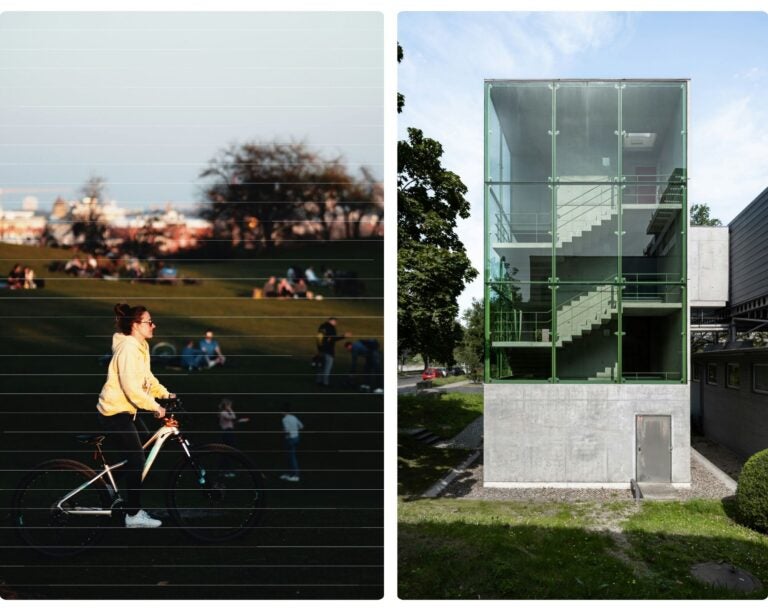Scholarships to study systems engineering abroad
In this article, you will find scholarships to study systems engineering abroad, with the best options internationally.
Studying systems engineering abroad is a unique opportunity to gain advanced knowledge, develop strong technical skills, and stay connected to the latest technological innovations. This field plays a vital role in today’s world, involving the design, development, and management of technological systems that are transforming entire industries. By choosing to study systems engineering abroad, you can expand your cultural and professional horizons while preparing yourself for a competitive global job market. That is why we are sharing information about scholarships that can help you make this international academic experience a reality.
Since the costs of studying abroad can be quite high, covering tuition, housing, transportation, and other living expenses may seem out of reach. Fortunately, there are scholarships that make it easier to access top-quality programs at renowned universities and institutions.
This article introduces some of the best scholarships available for students who want to study systems engineering abroad, including what you should know about their benefits and requirements. Staying connected is also essential when you are living and studying in another country, as it allows you to keep up with classes, stay close to family and friends, and make the most of your experience. For that reason, Holafly’s global plans are an excellent way to ensure you always have a reliable connection.
You can also enjoy unlimited data with an eSIM for international travel. Just visit the site, choose your destination, and select the number of days you need, with no need to change SIM cards or worry about roaming fees.
How much does it cost to study systems engineering abroad?
Studying systems engineering abroad comes with a range of expenses that can vary depending on the country and the university you choose. Here is a breakdown of the main costs you should keep in mind:
1. Tuition and university fees
Tuition is often the biggest expense when studying abroad. In the United States, annual tuition fees for systems engineering programs can range from about $22,000 to $55,000. In Europe, countries like Germany offer more affordable options, with public universities charging roughly $200 to $1,600 per year. Meanwhile, in the United Kingdom, tuition typically falls between $11,000 and $37,000 annually.
2. Accommodation
Housing is also a significant part of the budget. In cities like London, students may spend between $730 and $1,450 per month on rent, while in Germany or Canada, monthly costs usually range from $440 to $880. Staying in student dormitories is often more affordable than renting an apartment.
3. Transportation
Transportation costs depend on the city. In European cities with well-developed public transit systems, monthly expenses are usually around $55 to $110. In the United States, depending on the city, transportation can cost up to $150 per month.
4. Maintenance and other expenses
Living expenses cover food, health insurance, and other daily costs. Depending on the country, these can range from $500 to $1,000 per month. In many places, health insurance is required, with monthly costs between $50 and $200.
Overall, studying systems engineering abroad can cost between $15,000 and $60,000 per year, depending on your destination and lifestyle. That is why scholarships are so important for easing the financial burden.
The best scholarships for studying systems engineering abroad
Studying systems engineering abroad is an incredible opportunity, and with the scholarships available, this dream is within reach for many students. Below, we have compiled a list of the best options, highlighting all the key details you need to know to apply successfully.
DAAD scholarship for studies in Germany
Offered by the German Academic Exchange Service (DAAD), this globally recognized scholarship is aimed at international students who want to pursue a master’s or doctoral program in fields such as systems engineering.
- General requirements:
- Have a previous related university degree.
- Minimum grade point average of 8/10 (or equivalent).
- Two years of related work experience.
- Language certification (English or German, depending on the program).
- Coverage and benefits:
- Full tuition.
- Monthly stipend of $1,000.
- Medical and accident insurance.
- Transportation and international travel allowance.
- Types of studies offered: Master’s and doctoral degrees.
- Aimed at: International students of any nationality who meet the requirements.
- How to apply: Through the DAAD’s official website: www.daad.de.
- Opening date: Generally in August.
- Closing date: Usually ends in October or November, depending on the program.
Fulbright Scholarship for programs in the United States
One of the most prestigious scholarships in the world, funded by the United States government, it provides opportunities for graduate studies at American universities. It is perfect for students looking to specialize in systems engineering with a focus on technological innovation.
- General requirements:
- Previous academic degree with outstanding grades.
- Professional experience in engineering.
- Results of exams such as TOEFL or GRE.
- Coverage and benefits:
- Full tuition coverage.
- Monthly stipend for living expenses.
- Medical insurance.
- Transportation and visa costs.
- Type of studies offered: Master’s and doctoral degrees.
- Aimed at: Young professionals with leadership potential from selected countries.
- How to apply: Through the Fulbright Commission in your country or the official website: fulbrightprogram.org.
- Opening date: Varies by country, generally between February and May.
- Closing date: Between May and September, depending on the country.
The Chevening Scholarship in the United Kingdom
Funded by the United Kingdom government, this scholarship is perfect for students looking to pursue a master’s degree at a top British university. It is especially appealing for those who want to focus on areas like cybersecurity or software development.
- General requirements:
- University degree with a minimum grade point average equivalent to 8/10.
- At least two years of work experience.
- English language certificate (IELTS or TOEFL).
- Coverage and benefits:
- Full tuition.
- Monthly stipend for living expenses.
- Travel costs to and from the United Kingdom.
- Visa fees.
- Type of studies offered: One-year master’s degrees.
- Aimed at: International students with leadership skills, preferably from developing countries.
- How to apply: Through the official website: www.chevening.org.
- Opening date: August.
- Closing date: Usually in November.
Eiffel Scholarships for programs in France
Offered by the French Ministry of Europe and Foreign Affairs, this scholarship aims to attract top international students to advanced engineering programs at universities in France.
- General requirements:
- Be nominated by a French institution.
- Excellent academic performance (minimum average of 8/10).
- Proficiency in English or French, depending on the program.
- Coverage and benefits:
- Monthly allowance of $1,370.
- International transportation expenses.
- Medical insurance.
- Access to cultural activities.
- Type of studies offered: Master’s and doctoral degrees.
- Aimed at: International students under 30 (master’s degrees) or 35 (doctoral degrees).
- How to apply: Through the French universities participating in the program. Information at campusfrance.org.
- Opening date: Usually in October.
- Closing date: January of the following year.

Vanier CGS Scholarship in Canada
Funded by the Canadian government, this scholarship is designed to attract top international talent interested in conducting advanced research in systems engineering and related fields.
- General requirements:
- Proven academic excellence.
- Research experience.
- Proficiency in English or French, depending on the university.
- Coverage and benefits: $36,000 per year for three years.
- Type of studies offered: Doctorates.
- Aimed at: Outstanding international students, with no age limit.
- How to apply: Through the Canadian university where you plan to study. More details at vanier.gc.ca.
- Opening date: May.
- Closing date: Usually in November.
These scholarships are a great way for systems engineering students to pursue their goal of studying abroad. They support everything from master’s to doctoral programs, helping with key expenses and opening doors to valuable academic and professional connections.
Take the time to explore each scholarship carefully and get your application ready early, making sure you meet all the criteria. Keep a reliable connection during your studies abroad with services like Holafly, so you can stay in touch with loved ones and access learning resources easily. Studying systems engineering abroad will not only advance your career but also broaden your perspective on the world.
Important: If you are a frequent traveler and want to stay connected without worrying about expensive roaming or looking for a new SIM at every destination, Holafly’s subscription plans are for you. With a single eSIM, enjoy internet in more than 170 countries for a fixed price and no surprises on your bill. Travel without limits and connect easily and securely! 🚀🌍

Tips for obtaining scholarships to study systems engineering abroad
Securing a scholarship to study systems engineering abroad can be highly competitive, but with the right approach, you can stand out as a strong candidate. Here are some targeted tips for this field that can boost your chances of success:
Build a portfolio of relevant projects
Systems engineering programs place a high value on hands-on experience. Beyond maintaining strong grades, having a well-documented portfolio of projects is essential to showcase your technical skills and creativity.
- What to include: Web or mobile applications, optimization algorithms, cybersecurity projects, or data analysis work. Be sure to clearly explain the problem, your approach, and the results you achieved.
- How to present it: Use platforms such as GitHub or Behance to organize your portfolio and be sure to include links in your application.
This will make you stand out from other applicants and also show your commitment and passion for engineering.
Stand out in programming competitions and hackathons
Taking part in and standing out at international programming competitions, such as Google Code Jam, ACM ICPC, or specialized hackathons, can give you a significant edge.
- Benefits for your profile: These competitions showcase your ability to solve complex problems and perform well under pressure, skills that are essential in systems engineering.
- Relevance in scholarships: Some scholarship programs even give extra credit to applicants who have proven experience in these kinds of activities.
Spend time strengthening your skills in popular programming languages like Python, Java, or C++, and get ready to tackle logic and algorithm challenges.
Obtain internationally recognized certifications
Technical certifications can strengthen your application and show your expertise in specific areas of systems engineering.
- Recommended certifications:
- WS Certified Solutions Architect (Amazon Web Services).
- Certified Ethical Hacker (CEH).
- Google Professional Cloud Architect.
- Cisco Certified Network Associate (CCNA)
- Take time to go through official study materials and practice with mock exams. Many certifications also provide affordable online courses to help you prepare.
These certifications validate your knowledge and also reflect your efforts to stay up to date in a rapidly evolving field.
Write a personal statement with a focus on technology.
In most scholarship applications, the personal statement is key. For systems engineering, it should highlight your passion for using technology to solve real-world problems.
- Aspects to include:
- Your passion for technological innovation.
- Specific examples of how systems engineering can tackle global challenges, such as sustainability, cybersecurity, or artificial intelligence.
- Clear professional goals, such as contributing to technological development in your home country.
- Additional tip: Show how your goals match the university’s areas of expertise, highlighting how your vision fits with their academic approach.
A well-structured and compelling statement can make all the difference to your application.
Strengthen your network of contacts in the technology sector
Building connections with professionals and academics in systems engineering can give you access to valuable recommendations and insider information on scholarship opportunities.
- How to do it:
- Take part in events such as technology conferences, workshops, or webinars.
- Join online communities related to your area of interest, such as cybersecurity forums or software development groups.
- Connect with alumni who have received the scholarship you are applying for, as they can give you practical advice for your application.
A recommendation from a recognized figure in the academic or professional field can be a great boost to your application.
Master technical languages and international communication
In addition to the local language, it is essential to be comfortable with technical terms in English, as it is the primary language used in systems engineering.
- How to improve:
- Take specialized courses in technical English.
- Join online forums and courses taught in English.
- Prepare technical presentations and look for opportunities to practice them.
Effective communication in technical English can show your readiness to interact in an international academic and professional environment.

Frequently asked questions about scholarships to study systems engineering abroad
Typically, requirements include strong academic performance, experience with relevant projects, proficiency in the program’s language, and sometimes technical certifications.
It depends on the program. Some scholarships cover all expenses, including tuition, housing, transportation, and living costs, while others may only cover tuition partially or in full.
Not always, but having work or internship experience in systems engineering can be a deciding factor, especially for graduate programs.
Some scholarships allow you to make up for certain gaps by highlighting achievements in other areas, such as innovative projects, international competitions, or an outstanding personal statement.
Look for opportunities on official university websites, specialized scholarship platforms like DAAD or Chevening, and professional networks such as LinkedIn. Stay informed by subscribing to newsletters from educational institutions.
The most common requirements are academic transcripts, test scores like the TOEFL or GRE, recommendation letters, a resume, a project portfolio, and a personal statement.
Ideally, you should start preparing at least one year in advance to meet all the requirements and deadlines.
Platforms such as Coursera, Udemy, and Codecademy offer courses and useful resources to prepare you for recognized technical certifications.





 Language
Language 


















 No results found
No results found








